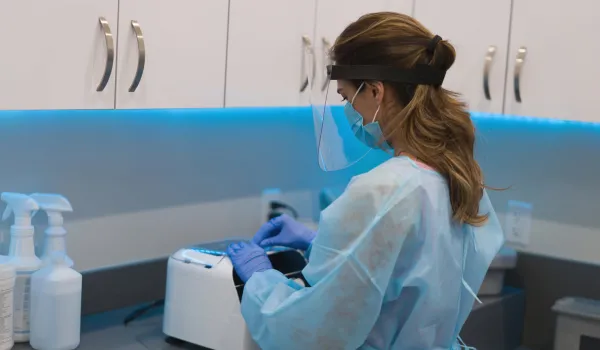Concorde Staff

Neurodiagnostic Technology and Neurodiagnostic Technologists, such as the ones that receive their training from Concorde, work extensively with electroencephalography, or EEG. And, EEG and epilepsy, a neurological disorder marked by sudden recurrent episodes of sensory disturbance, such as convulsions and seizures, go hand in hand in the diagnosis and treatment.
A long history of epilepsy and seizures
"Seizures go back in history hundreds of years," said Marc Williams, BVE, FASET, R.EEG/EPT, CNIM, CLTM, Program Director of the Neurodiagnostic Technology program at Concorde's campus in Grand Prairie, Texas. "Many famous people have had different types of seizures and have been controlled with medications to allow them to live normal lives.
"The EEG helps diagnose the type and frequency of seizures and when they were first recorded."
Seizures affect all ages, from birth to old age, Williams said. And the EEG can be used on all these age groups.
"More than 80 years ago, Hans Berger helped identify EEG patterns and the different seizure types," Williams said. "Since then, the development of EEG equipment use has grown from one channel of recording on paper with ink and pens to today's technology of multiple channels of digital data and storage, as well as the ability to view the data in different formats."
No routine procedure can identify the type of seizures except video monitoring with the aid of the EEG, Williams said.
"A seizure is not needed to identify them on the EEG," he said. "Capturing a seizure helps with the localization of some types of seizures within the brain."
Neurodiagnostic Technology helping with diagnoses
EEG and video monitoring, along with other tests, help determine if the patient qualifies for surgery to help control and/or rid the part of the brain causing the patient's seizures, as well as aiding in the selection of the various anti-epileptic drugs used to control them, Williams said.
EEG monitoring of patients in Intensive Care Units now can be used to help underlying seizures on patients admitted with altered mental status.
Patients with continuous seizures can be monitored with the EEG while administering medications to help control the seizures.
"EEG monitoring can be done as an outpatient and sent home with a monitoring system to help capture the patient's clinical events to help determine the type and frequency of seizures and possibly other events associated with loss of consciousness," Williams said.

Take The Next Step Towards a Brighter Future
Interested in learning more about our Neurodiagnostic Technology program? We have a Concorde representative ready to talk about what matters most to you. Get answers about start dates, curriculum, financial aid, scholarships and more!






